Machine Learning Experiment Hyperparameter Optimization
Project description
Lightweight Hyperparameter Optimization 🚂
The mle-hyperopt package provides a simple and intuitive API for hyperparameter optimization of your Machine Learning Experiment (MLE) pipeline. It supports real, integer & categorical search variables and single- or multi-objective optimization.
Core features include the following:
- API Simplicity:
strategy.ask(),strategy.tell()interface & space definition. - Strategy Diversity: Grid, random, coordinate search, SMBO & wrapping FAIR's
nevergrad, Successive Halving, Hyperband, Population-Based Training. - Search Space Refinement based on the top performing configs via
strategy.refine(top_k=10). - Export of configurations to execute via e.g.
python train.py --config_fname config.yaml. - Storage & reload search logs via
strategy.save(<log_fname>),strategy.load(<log_fname>).
For a quickstart check out the notebook blog 📖.
The API 🎮
from mle_hyperopt import RandomSearch
# Instantiate random search class
strategy = RandomSearch(real={"lrate": {"begin": 0.1,
"end": 0.5,
"prior": "log-uniform"}},
integer={"batch_size": {"begin": 32,
"end": 128,
"prior": "uniform"}},
categorical={"arch": ["mlp", "cnn"]})
# Simple ask - eval - tell API
configs = strategy.ask(5)
values = [train_network(**c) for c in configs]
strategy.tell(configs, values)
Implemented Search Types 🔭
| Search Type | Description | search_config |
|
|---|---|---|---|
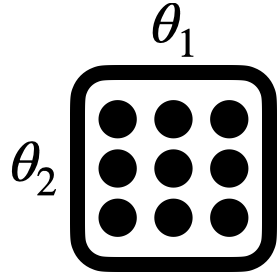 |
GridSearch |
Search over list of discrete values | - |
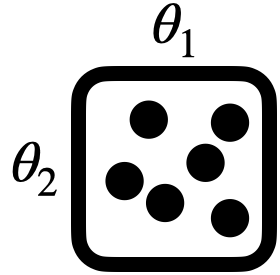 |
RandomSearch |
Random search over variable ranges | refine_after, refine_top_k |
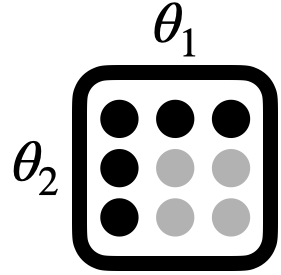 |
CoordinateSearch |
Coordinate-wise optimization with fixed defaults | order, defaults |
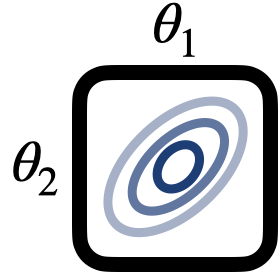 |
SMBOSearch |
Sequential model-based optimization (Hutter et al., 2011) | base_estimator, acq_function, n_initial_points |
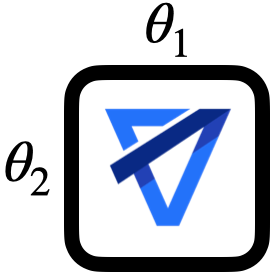 |
NevergradSearch |
Multi-objective nevergrad wrapper | optimizer, budget_size, num_workers |
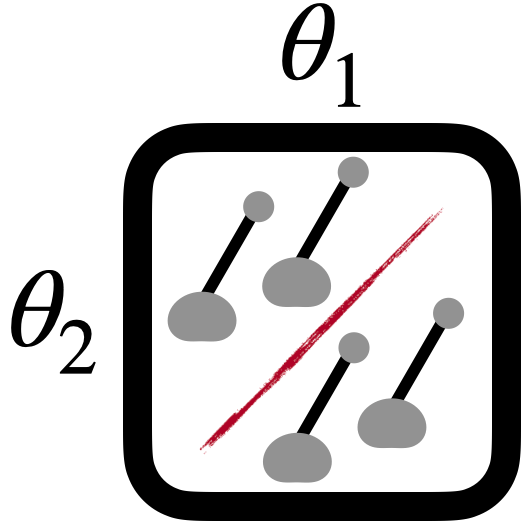 |
HalvingSearch |
Successive Halving (Karmin et al., 2013) | min_budget, num_arms, halving_coeff |
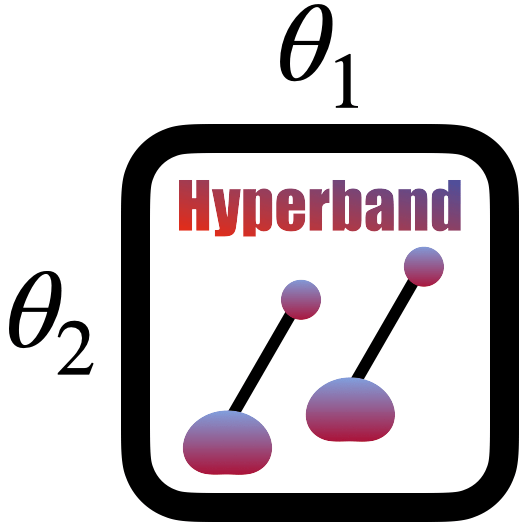 |
HyperbandSearch |
Hyperband (Li et al., 2018) | max_resource, eta |
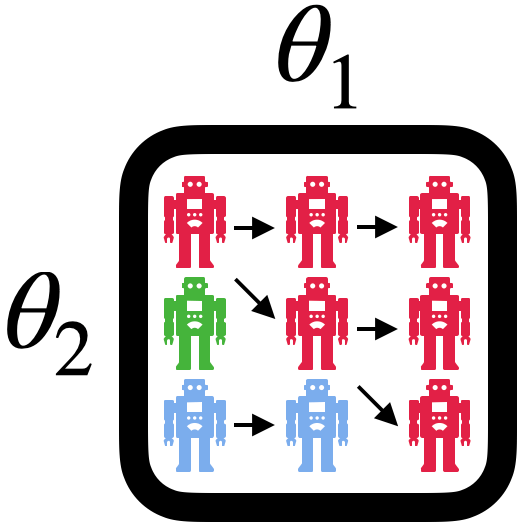 |
PBTSearch |
Population-Based Training (Jaderberg et al., 2017) | explore, exploit |
Variable Types & Hyperparameter Spaces 🌍
| Variable | Type | Space Specification | |
|---|---|---|---|
 |
real |
Real-valued | Dict: begin, end, prior/bins (grid) |
 |
integer |
Integer-valued | Dict: begin, end, prior/bins (grid) |
 |
categorical |
Categorical | List: Values to search over |
Installation ⏳
A PyPI installation is available via:
pip install mle-hyperopt
If you want to get the most recent commit, please install directly from the repository:
pip install git+https://github.com/mle-infrastructure/mle-hyperopt.git@main
Search Method Highlights 🔎
Grid Search 🟥
strategy = GridSearch(
real={"lrate": {"begin": 0.1,
"end": 0.5,
"bins": 5}},
integer={"batch_size": {"begin": 1,
"end": 5,
"bins": 1}},
categorical={"arch": ["mlp", "cnn"]},
fixed_params={"momentum": 0.9}) # Add fixed param setting to each config
configs = strategy.ask()
Hyperband 🎸
strategy = HyperbandSearch(
real={"lrate": {"begin": 0.1,
"end": 0.5,
"prior": "uniform"}},
integer={"batch_size": {"begin": 1,
"end": 5,
"prior": "log-uniform"}},
categorical={"arch": ["mlp", "cnn"]},
search_config={"max_resource": 81,
"eta": 3},
seed_id=42, # Fix randomness for reproducibility
verbose=True)
configs = strategy.ask()
Population-Based Training 🦎
strategy = PBTSearch(
real={"lrate": {"begin": 0.1,
"end": 0.5,
"prior": "uniform"}}
search_config={
"exploit": {"strategy": "truncation", "selection_percent": 0.2},
"explore": {"strategy": "perturbation", "perturb_coeffs": [0.8, 1.2]},
"steps_until_ready": 4,
"num_workers": 10,
},
maximize_objective=True # Max score instead of min
)
configs = strategy.ask()
Further Options 🚴
Saving & Reloading Logs 🏪
# Storing & reloading of results from .json/.yaml/.pkl
strategy.save("search_log.json")
strategy = RandomSearch(..., reload_path="search_log.json")
# Or manually add info after class instantiation
strategy = RandomSearch(...)
strategy.load("search_log.json")
Search Decorator 🧶
from mle_hyperopt import hyperopt
@hyperopt(strategy_type="Grid",
num_search_iters=25,
real={"x": {"begin": 0., "end": 0.5, "bins": 5},
"y": {"begin": 0, "end": 0.5, "bins": 5}})
def circle(config):
distance = abs((config["x"] ** 2 + config["y"] ** 2))
return distance
strategy = circle()
Storing Configuration Files 📑
# Store 2 proposed configurations - eval_0.yaml, eval_1.yaml
strategy.ask(2, store=True)
# Store with explicit configuration filenames - conf_0.yaml, conf_1.yaml
strategy.ask(2, store=True, config_fnames=["conf_0.yaml", "conf_1.yaml"])
Storing Checkpoint Paths 🛥️
# Ask for 5 configurations to evaluate and get their scores
configs = strategy.ask(5)
values = ...
# Get list of checkpoint paths corresponding to config runs
ckpts = [f"ckpt_{i}.pt" for i in range(len(configs))]
# `tell` parameter configs, eval scores & ckpt paths
# Required for Halving, Hyperband and PBT
strategy.tell(configs, scores, ckpts)
Retrieving Top Performers & Visualizing Results 📉
# Get the top k best performing configurations
id, configs, values = strategy.get_best(top_k=4)
# Plot timeseries of best performing score over search iterations
strategy.plot_best()
# Print out ranking of best performers
strategy.print_ranking(top_k=3)
Refining the Search Space of Your Strategy 🪓
# Refine the search space after 5 & 10 iterations based on top 2 configurations
strategy = RandomSearch(real={"lrate": {"begin": 0.1,
"end": 0.5,
"prior": "log-uniform"}},
integer={"batch_size": {"begin": 1,
"end": 5,
"prior": "uniform"}},
categorical={"arch": ["mlp", "cnn"]},
search_config={"refine_after": [5, 10],
"refine_top_k": 2})
# Or do so manually using `refine` method
strategy.tell(...)
strategy.refine(top_k=2)
Note that the search space refinement is only implemented for random, SMBO and nevergrad-based search strategies.
Simple Command Line interface ⌨️
You can also directly launch a search for your applications. This requires a couple of things: A python script <script>.py containing a function main(config), which runs your simulation for a given configuration dictionary. It should return a single scalar performance score, which will be logged.
def main(config):
...
return score
Furthermore, you will need a search configuration <search>.yaml file and can add default fixed parameter settings in <base>.yaml.
mle-search <script>.py -base <base>.yaml -search <search>.yaml -iters <search_iters>
Have a look at the example, which can be executed via mle-search run_mle_search.py -search search.yaml -base base.yaml. You can reload a previous search log by adding the option -reload.
Citing the MLE-Infrastructure ✏️
If you use mle-hyperopt in your research, please cite it as follows:
@software{mle_infrastructure2021github,
author = {Robert Tjarko Lange},
title = {{MLE-Infrastructure}: A Set of Lightweight Tools for Distributed Machine Learning Experimentation},
url = {http://github.com/mle-infrastructure},
year = {2021},
}
Development 👷
You can run the test suite via python -m pytest -vv tests/. If you find a bug or are missing your favourite feature, feel free to create an issue and/or start contributing 🤗.
Project details
Release history Release notifications | RSS feed
Download files
Download the file for your platform. If you're not sure which to choose, learn more about installing packages.
Source Distribution
Built Distribution
Hashes for mle_hyperopt-0.0.9-py3-none-any.whl
| Algorithm | Hash digest | |
|---|---|---|
| SHA256 | ea483e1d26092c149bab41fd4c98267563daff4e6c200d93b48e5757403d2966 |
|
| MD5 | 7753565e94aa88c1e5fa39896df9d7cf |
|
| BLAKE2b-256 | e7949be8f56f8626cedabe7e6d7a92227b081bf0b54389c0e91494faec012289 |

















